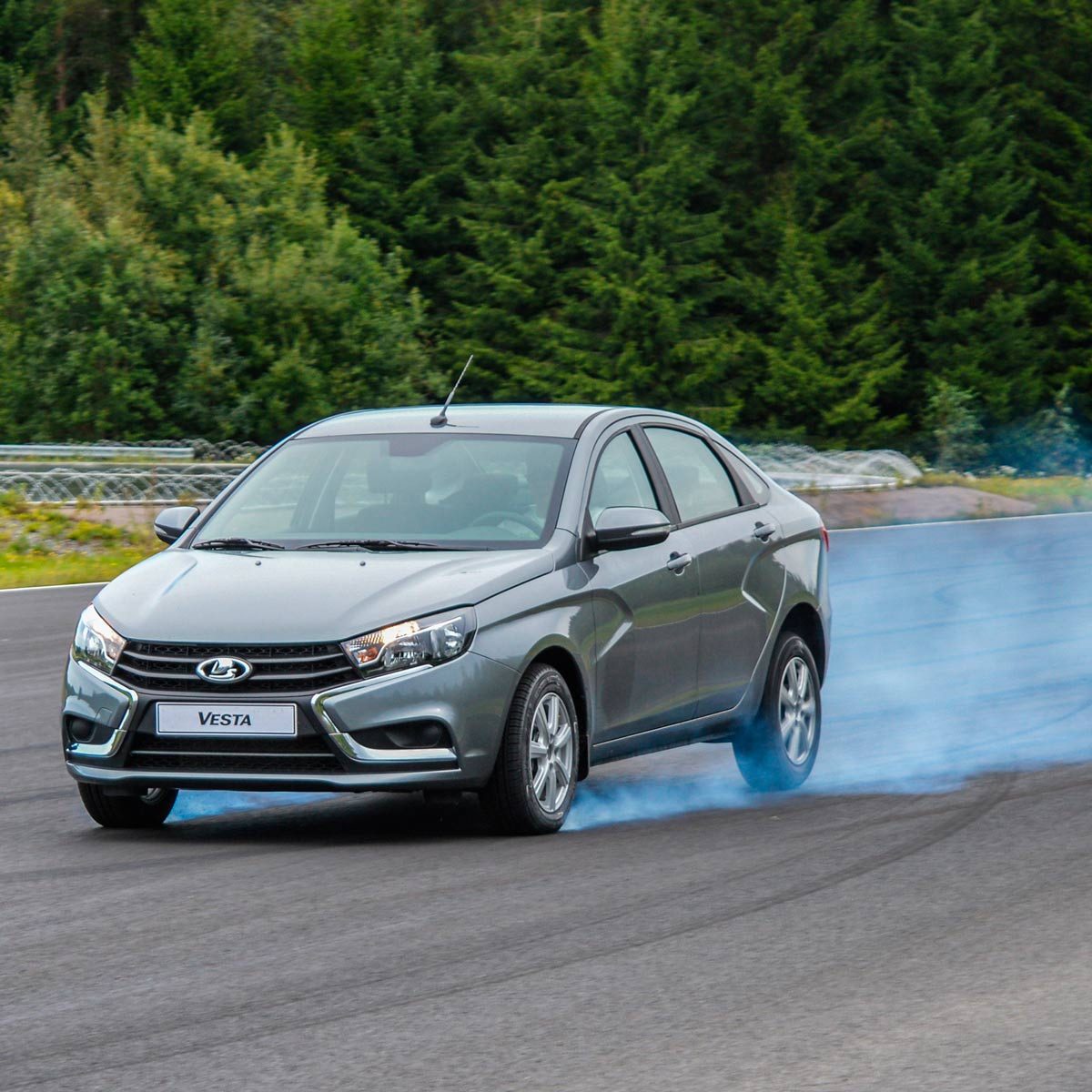What does it mean when your brakes are smoking? Learn the causes and DIY fixes for smoking brakes along with brake overheating systems.

Causes and DIY Fixes for Smoking Brakes

Are your brakes smoking? In most cases, the presence of smoke requires immediate corrective action. New brake pads represent an exception but still require your attention.
“Smoking brakes are not normal and usually signal a serious issue that drivers should not ignore,” says Duane “Doc” Watson, a technical trainer at Bosch Mobility Aftermarket.
That’s because your brake system works off of the friction between the pads and the rotors or drums. “And as we know, friction creates heat, and in extreme cases, can lead to overheating, smoking and even fire,” says Watson.
If your brakes are smoking, it’s vital for your safety to figure out why as soon as possible. Here’s how to diagnose the cause of and understand the fixes for smoking brakes.
On This Page
First, How Are You Driving?
Overheated brakes (and yes, smoke) can result from excessive braking. Hard braking from high speed, accelerating and braking at the same time and continuous braking while driving downhill, all may cause excessive heat to build up. Stop your vehicle and let it cool. If you must resume downhill travel, it’s better to shift into a lower gear, which limits your speed, rather than riding your brakes.
Proceed with care once you recognize evidence of smoking brakes. Overheating the brake system can cause brake fluid to boil, which changes its composition and leads to system failure. Even if you plan to fix the problem yourself, you may want to consider a tow if the issue is related to mechanical malfunction and cannot be corrected immediately.
Brakes Smoking After New Pads and Rotors
Many new brake pads need a break-in period. Although manufacturers thoroughly prepare new brake pads for use, the demands of a caliper piston pushing the pad against a quickly turning rotor exceed conditions they can replicate in production. Many pads, therefore, experience a final cure during the days after installation and may emit some smoke as part of the process. If your brakes smoke a little, the vehicle does not pull to one side, it accelerates freely, and a visual inspection shows good pad motion, then watch the situation. Curing should resolve within a few hundred miles.
What Does It Mean When Your Brakes Are Smoking?
Eliminate post-installation curing of new brakes from the discussion and several mechanical issues remain to explore. Most likely, overheated brake pads come from a malfunctioning caliper (disc brakes) or wheel cylinder (drum brakes). In either case, pistons that transfer hydraulic pressure to the pads can corrode and stick. When stuck in the extended position, the pads can build up enough heat to smoke.
Corrosion Can Cause Stuck Caliper Pins
Corrosion can also foul caliper motion at the carrier pins and cause them to stick.
Prevent either of these situations by lubricating any moving parts with high-temperature brake grease each time you do brake work. This small investment in time and effort can help you avoid headaches later. Uneven wear from opposing sides of the rotor or drum can indicate the beginnings of a problem. Once the malfunction occurs, however, corroded brake pins should be replaced (cheap and easy) and calipers or wheel cylinders may need replacement or reconditioning (a larger investment of time and money).
Less Common Causes of Smoking Brakes
Less common causes of smoking brakes include road debris obstructing caliper motion or internal debris blocking the flow of brake fluid so that pressure does not subside when you release the brake. Rectify the former simply by clearing the obstruction. The latter may require a fluid change or a new brake line to resolve. While you’re at it, learn about DOT 4 brake fluid.
FAQ
What happens if I ignore smoking brakes?
It can create a major safety issue that can end with brake failure, plus a number of costly fixes. “Ignoring smoking brakes can lead to warped rotors, ruined brake pads, brake fluid boil or even a fire in extreme cases,” says Kevin Oliff, general manager at AutoNation BMW Buena Park.
How can I prevent smoking brakes?
Keep that heat and friction under control. “The number one cause of brake overheating is from riding your brakes, so go easy on them!” says Watson. “Lower your speed and give yourself more space between vehicles while driving.”
Also:
- Brake in intervals, vs. long pushes on the pedal, to give your brakes time to cool between presses. This is particularly important on long downhill stretches.
- While going downhill, also downshift to slow down.
- Don’t overload your car. “The heavier the car, the harder your brakes have to work to slow you down,” says Watson.
- Maintain your brake system by regularly checking your rotors, calipers and brake fluid.
- Opt for brake pads with advanced friction formulas.
About the Experts
- Duane “Doc” Watson is a technical trainer at Bosch Mobility Aftermarket. He has more than 45 years of experience in automotive repair, has trained thousands of technicians and earned many industry awards, including Chevrolet Technician of the Year and Buick Service Master of the Year.
- Kevin Oliff is the general manager at AutoNation BMW Buena Park in California and has more than 20 years of experience in the automotive field.
Learn what different warning lights mean on your dashboard and what to pack in a roadside emergency kit.
Learn the things to never, ever do to your car in the video below.




















